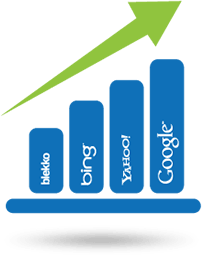
In simplest terms, a CMS is a software package that facilitates the creation, publishing, distribution, organization and management of online content. Most CMS look very similar to word processing software, like Microsoft's Word. A CMS not only creates the structure of how information- articles, video, design elements and images- will be presented, it gives all of the tools for populating a website.
A CMS assists the web editor by providing tools for the creation of content, the publishing of the content, and, ultimately to archiving and storing the content. Depending on the client's needs and staffing, the CMS can be designed for use by a highly technical webmaster or can be so simple and intuitive that even the most technologically challenged editors can use it effectively.
Quickly create new content and articles
Update existing images or text on the fly.
Format additional content including banners and widgets.


Easily integrates with ecommerce.
Plugins like Google Checkout, Paypal, and more.
Easily install and update Google Analytics.
Seamlessly update meta data, sitemaps, and more.
Quickly update your sitemap to keep search engines up to date with your site.


Grant CMS access to multiple team members.
Limit access to different parts of your website.
Assign limited or administrative access to various team members.
